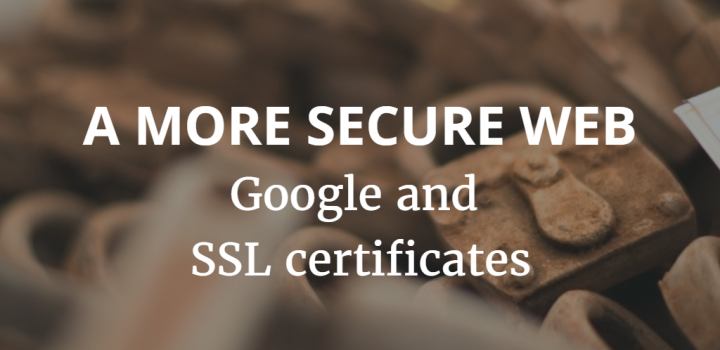
Google have announced in a post on their Google Security Blog that the next version of their Chrome browser will include a 'Not secure' warning for websites not utilising an SSL certificate.
In this article, we cover the changes that Google is introducing, what they mean, and how they will impact your website.
A more secure web
Google is on a mission to "secure the web", gradually introducing changes to encourage website owners to all use an SSL certificate on their website.
In 2014, it introduced a slight ranking boost for websites using SSL, favouring those pages in Search Engine Results.
This new announcement is more significant, as a 'Not secure' warning will no doubt alarm website visitors and have them question whether they should stay on the site.
Unless you've specifically had an SSL certificate installed for taking credit card details, your website is probably currently served via HTTP, and the address bar looks like this:![]()
With an SSL certificate, your website is served via HTTPS, and the address bar reflects this:![]()
From January 2017, if you accept Credit Card details or ask for password information and don't have an SSL certificate, Google Chrome browsers will show this:
But Google is not stopping there - eventually it plans to label ALL 'not secure' web pages an even more obvious red triangle.![]()
What is the difference between HTTP vs HTTPS?
HTTP stands for HyperText Transfer Protocol and is basically how information is shared across the internet. HTTP sites provide no data security to users, so when a website is loaded, someone on the network can intercept and modify the site before it gets to you.
HTTPS stands for HyperText Transfer Protocol Secure. HTTPS encrypts and decrypts web pages, keeping the data safe. Even if the web page is intercepted, it can't be read as the information is encrypted.
HTTPS is enabled through the use of an SSL certificate, which is installed on a website hosting server.
What you need to do
If you're not already utilising an SSL certificate, we recommend getting one in place sooner rather than later to avoid your website visitors being presented with the "not secure" warning.
If you're a Bee Online customer, we'll be in touch to organise the upgrade of your website hosting package. We'll arrange an SSL certificate and set up your website so that all web pages will be served via HTTPS.
If you're not a Bee Online customer, talk to your website developer or website hosting provider.
If you have any concerns or questions, please contact us today.
